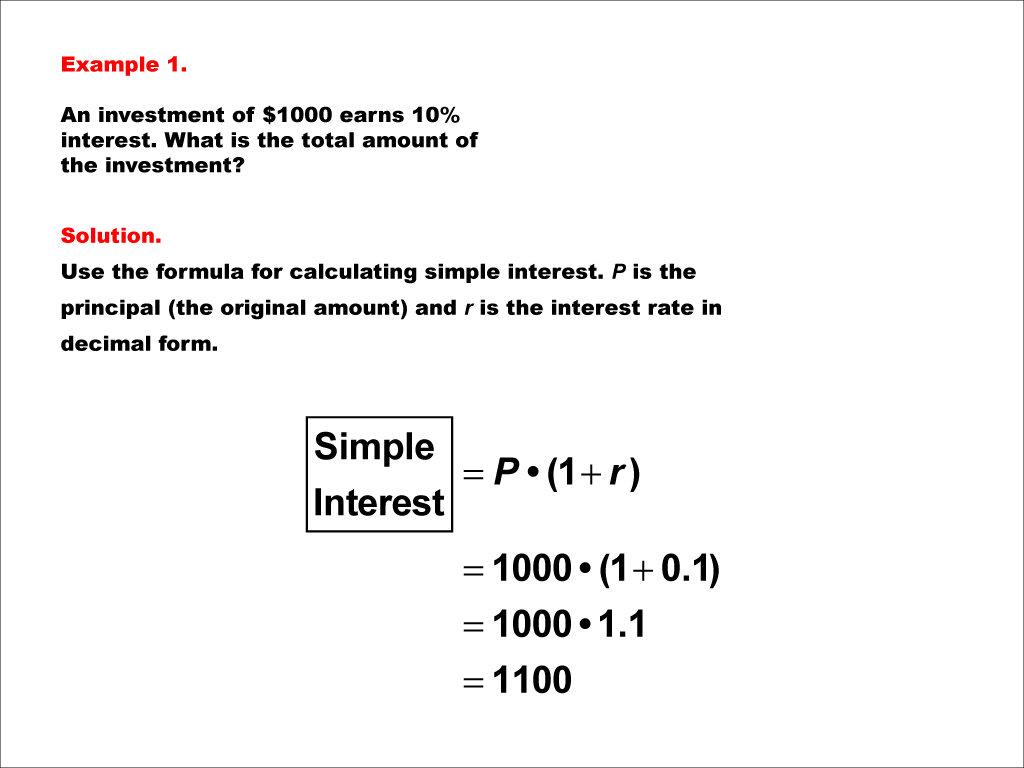
Display Title
Math Example--Math of Money--Simple Interest--Example 1
Display Title
Math Example--Math of Money--Simple Interest--Example 1

Topic
The Math of Money
Description
An investment of $1000 earns 10% interest. Calculate the total amount of the investment after applying simple interest.
The solution uses the formula for simple interest: Total Amount = P * (1 + r). Substitute P = 1000 and r = 0.1 to get 1000 * (1 + 0.1) = 1000 * 1.1 = 1100. Thus, the total amount is $1100.
Understanding the math of money concepts is crucial for students, as it forms the basis for financial literacy. Examples like this showcase the practical application of simple interest formulas, helping learners to connect theoretical knowledge with real-world scenarios.
Seeing multiple worked-out examples aids in comprehending patterns and variations in problem-solving approaches. It also reinforces the understanding of the formula: Total Amount = P * (1 + r). This structured exposure builds confidence and critical thinking skills.
Teacher Script: Let's explore this example of calculating simple interest. Notice how we substitute the values for P, the principal amount, and r, the rate of interest, into the formula. This is a step-by-step process. Take a moment to ensure each calculation aligns with our formula. How do you think changes in P or r affect the total amount?
For a complete collection of math examples related to The Math of Money click on this link: Math Examples: Simple Interest Collection.
| Common Core Standards | CCSS.MATH.CONTENT.7.RP.A.3 |
|---|---|
| Grade Range | 6 - 8 |
| Curriculum Nodes |
Algebra • Ratios, Proportions, and Percents • Percents |
| Copyright Year | 2021 |
| Keywords | percent change, percent increase, math of money, simple interest |